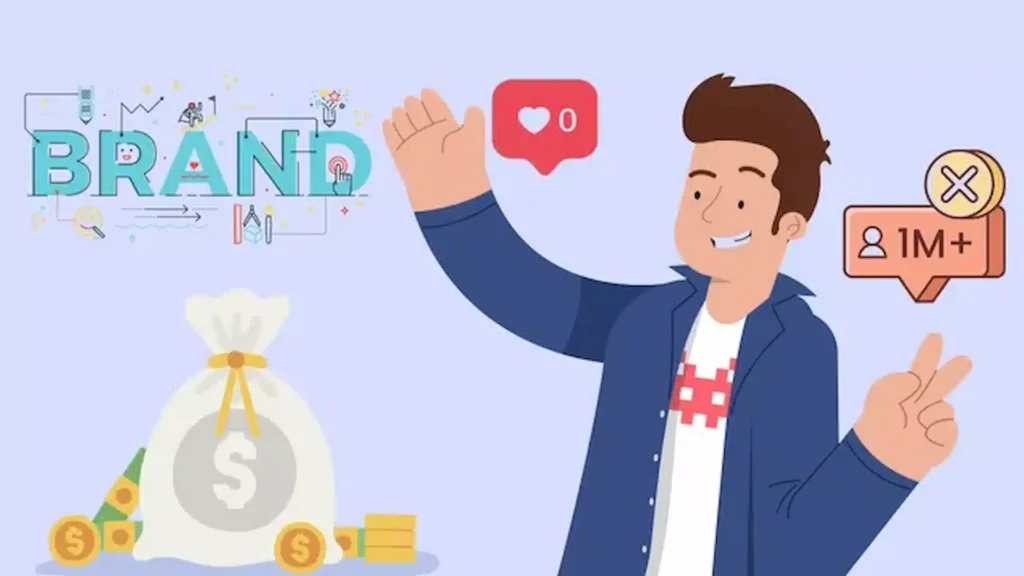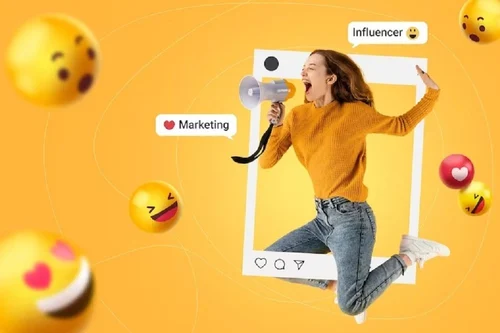Influencer Marketing Ethics: How to Get It Right in 2025

Influencer marketing ethics are no longer just a trending topic—they’re a business necessity. Today, brands rely on ethically-driven influencers to foster genuine connections with their audiences. With great power, however, comes great responsibility, and that’s where ethical influencer marketing kicks in. Transparency, honesty, and social responsibility aren’t just nice to have in 2025—they’re essentials. Let’s dig into how brands and influencers can own ethical influencer marketing without being a robot or corporate script.
What Is Influencer Marketing Ethics?

Influencer marketing ethics means playing fair—it’s the rulebook for how influencers and brands should act when teaming up online.. It involves honesty in sponsored posts, being truthful about product usage, adherence to advertising guidelines, and overall regard for the trust of the audience.
It’s absolutely not about following the law—about doing what’s right. Think FTC disclosures, no faking it, and be human to followers, not dollar signs.
Why Do Influencer Marketing Ethics Matter?
In an era where one misstep can be viral for the wrong reasons, keeping ethical practices in check fosters long-term trust with consumers. Today’s consumers, particularly Gen Z and Millennials, appreciate genuineness. They perceive a phony endorsement from a mile away.
Those who adhere to ethical principles receive more engagement, customer loyalty, and greater reputation. Influencers who remain honest tend to develop more quickly and retain the audience longer.
FTC Guidelines and the Role of Disclosure

Being upfront is key—clear disclosure is one of the core pillars of influencer marketing ethics..The Federal Trade Commission (FTC) mandates that influencers clearly disclose sponsored content. No more hiding #ad in a pile of hashtags or tucking disclaimers away in Stories—keep it upfront and clear.
How to Properly Disclose Sponsored Content (Influencer Marketing Ethics Guide)
- Start your caption with #ad or #sponsored so there’s no confusion right from the jump.
- If it’s a video, clearly state the partnership both out loud and on-screen at the very beginning.
• Keep it real about how the product actually worked for you—honesty builds trust.. Transparency creates trust. If followers feel cheated, they bounce—and so does your reputation
Social Responsibility and Influencer Marketing

Morally sound influencer marketing isn’t simply legality—it’s about social responsibility. Are influencers selling products that are aligned with their values and their audience’s well-being?
Look at the beauty space. Selling unhealthy beauty ideals or unsubstantiated skincare is not healthy. Ethical influencers steer away from material that might be detrimental to self-esteem or perpetuate misinformation.
Real-World Example: Selling Wellness Over Weight Loss
Rather than selling skinny teas, most influencers now emphasize overall wellness and mental health. That’s not only healthier but based on influencer marketing ethics too.
Steer Clear of Exploitation and Tokenism

Some brands only talk about diversity to look good, not because they mean it—and people notice.. That’s not ethical. Showing diversity is great—but it has to be honest to mean something.
- Don’t token minority influencers in order to tick a box.
- Partner authentically and pay them fairly.
- Feature their posts and give them a platform year-round, not simply during cultural months.
Responsible influencer marketing facilitates inclusion, not exploitation.
Influencer Responsibility to Followers
Influencers owe a moral responsibility to their followers. This includes:
- Sharing authentic reviews
- • Skip the partnerships that don’t vibe with your values—they’re not worth the fallout.
- • Admitting past errors and rectifying misinformation
Even small influencers with only a few thousand followers need to be good at marketing ethics. Trust is built in each post.
Case Study: Fyre Festival Fallout
The Fyre Festival is a classic example of what happens when influencer marketing ethics fail. High-profile influencers such as Kendall Jenner endorsed a high-end music festival without screening it.
The consequences? Lawsuits, damaged reputation, and an industry-wide wake-up call.
Brands and influencers need to screen each other before signing a contract. Ask questions. Require transparency.
Ethical Partnerships Over Fast Cash
Fast cash deals come with long-term regret. Influencers should consider more than the paycheck:
- Does the brand reflect their values?
- Have they tried the product before?
- Will promoting it serve their audience?
Establishing a career based on honesty and trust is much more long-lasting than pursuing viral stardom. For a broader view of what’s coming, you can also explore 2025 social media marketing trends and align your influencer strategy accordingly.
How Brands Can Encourage Influencer Marketing Ethics

Brands are not free from blame. They ought to:
- Offer transparent disclosure guidelines
- Promote authenticity
- Not pressure influencers into deceiving
- Be transparent regarding payments and expectations
Ethical brands recruit ethical influencers—mutuality applies.
Using Podcasts, Blogs & Videos to Educate

Numerous influencers are also shifting to podcasts and long-form writing to talk about the ethics of marketing. Others even have guests on to speak about failures and lessons learned.
These media platforms assist in making the industry more humanized and driving the message of influencer marketing ethics deeper into public awareness.
Suggested Podcast Topics
- “When I Said No to a $50K Brand Deal”.
- “The Time I Promoted the Wrong Product”.
- “Real Talk: Ethics in Influencer Collabs”.
What the American Marketing Association Says
The American Marketing Association’s Code of Ethics lays out core values like honesty, fairness, and respect — it’s basically a playbook every influencer and brand should follow.— it’s basically a playbook every influencer and brand should follow.
While not binding by law, adhering to it provides your campaigns with moral legitimacy and can help you differentiate in a busy marketplace.
Building an Ethical Marketing Agency or Personal Brand

If you’re launching an influencer agency or personal brand, ethics need to be included in your building blocks.
- Insert ethical protocols in contracts
- Offer continuous education to influencers
- Create a feedback loop with your audience — think of it as an ongoing conversation that helps you grow while showing them you’re listening.
Trust gains momentum. Transparency fosters longevity. Ethics aren’t trendy; they’re a strategy.
FAQs About Influencer Marketing Ethics
1. What happens if an influencer doesn’t report a paid partnership?
Failing to report a paid partnership violates FTC guidelines and can result in fines. It also damages trust, with followers unfollowing, reporting the post, or accusing the influencer of dishonesty, harming both individual credibility and the brand’s reputation.
2. What’s the deal with the future of influencer marketing ethics in the U.S.?
We’re going to see stricter rules, increased audience consciousness, and more pressure on influencers and brands to be held to account. AI-powered content audits and public shaming will become more common, and it’s all the more reason to conduct business with complete transparency.
3. Can an influencer be held accountable for advocating a scam?

Absolutely. If an influencer showcases a scam product or service without proper research, they can be sued, receive reputation damage, and get banned from platforms. Ethical behavior is doing research before endorsing anything — no exceptions.
4. Should micro-influencers be held to the same ethics as celebrities?
Yes, ethics don’t depend on follower count. Whether you have 500 or 5 million followers, transparency and honesty matter equally. In fact, micro-influencers often have tighter-knit communities, which makes trust even more crucial.
5. How can small influencers keep things ethical without a fancy legal team?
Small influencers can maintain ethical standards by applying common-sense transparency, including adding #ad, only endorsing products they actually use, and labeling products clearly to followers. They don’t require a legal department to be responsible; honesty and open communication are key.

Conclusion: The Future of Influencer Marketing Ethics
As we go further into 2025, influencer marketing ethics will become even more crucial. The audience is wiser, the rules are tougher, and the web never forgets.
Whether you’re an agency, a brand, or an influencer, doing it ethically isn’t the nice thing—it’s the smart thing. You don’t gotta be perfect — just be real, be straight, and take responsibility.
Begin now. Be the one someone still has faith in influencer marketing tomorrow.







